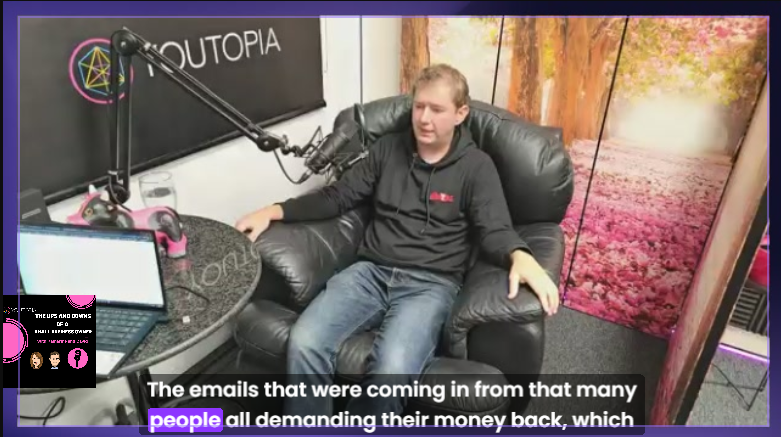January 20 Newsletter
December 31, 2019
BUSINESS UPDATE
Here are a few of our frequently asked questions...
Can employees who work from home receive some kind of rebate?
The trend of employees working from home for at least part of their working week is definitely increasing. If you are 'forcing' the employee to work from home then they can claim back marginal costs such as; refreshments, central heating that are 'wholly and exclusively used in the performance of their duties'. An easier calculation is a payment of a maximum of £4 per week to an employee as a tax free benefit in kind, employers also benefit by a reduction of Corporation Tax as it is a claimable expense.
I work from home, can I claim travel?
If you are self-employed, work from home but travel for work such as a plasterer or consultant the good news is that all travel and subsistence is allowable. If you own a limited company and you are an employee and you are required to travel to various locations, then all travel from your permanent workspace at home is allowable. But if you're permanent workplace is an office in London then you cannot claim the travel from home to the London office as this would be commuting.
What counts as a commercial vehicle?
This is tricky and is mainly queried in order to claim back vat. Here are a few criteria that could be considered for commerical vehicles; minibuses, camper vans, ambulances, prison vans, vehciles weighing more than 3 tonnes, special purpose vehicles (e.g. ice cream vans) and vehicles with a payload of one tonne more.
What are the advantages of trading as a limited company?
The personal assets of the business owners are protected, in case the company runs into financial difficulties. Many suppliers feel more confident when dealing with limited companies. The ownership can be easily divided by selling shares, this can also be used to raise additional capital in the future.
If you have a question, please get in touch and we'll try our best to answer it for you.
ACCOUNTING UPDATE
Personal Tax Return deadline is looming....
The deadline for filing your personal tax return for year ended 5th April 2019 is 31st January 2020 for an online return. Here is a checklist of information that you will need in order to complete it:
• Employment income (if you’re also employed)
• Dividends
• Partnership income
• Interest
• Rental income
• Foreign income
• Pensions contributions
• Gift Aid
• Pension income
• Payment on account
• Redundancy lump payment or unemployment benefit
• P11D
• Capital gains
• Your unique taxpayer reference number
Remember that you will also need to pay the tax liability by 31st January 2020. If the liability is greater than £1,000 you will also need to pay an extra 50% of the liability as a payment on account for 2020/21 tax year, with the additional 50% due by 31st July 2020.
Don't be late
Otherwise you'll receive a £100 penalty!
APP OF THE MONTH..... SPOTLIGHT
We love using Spotlight Reporting to show our clients their financial and non-financial information in one clear report, using bright colours and a mixture of charts, graphs and numbers.
We include any information that is important to our clients, making each report unique and a one-stop-shop for all management information. A popular plug in is Google Analytics, making it easy to see if marketing spend or your new website is making the impact you hoped for.
Visit the Spotlight website for more details.
Please get in touch to see our demo report, and see if it could give you the insight that you need to help you understand your business and the numbers.
TEAM NEWS
David asked his girlfriend Rachel to marry him... and she said 'Yes'!
We're so pleased for you David, let the wedding plans commence!
Until next month,
David & Katherine

In Part 1 of this series, Dr Anita Devi opened the conversation on the rising complexity of SEND and the need for intentional, values-driven provision. Her reflections focused on inclusive leadership, purposeful commissioning, and the principle that less can often be more . In this second part, I’d like to continue the conversation — but from a financial perspective. My name is Katherine Robertson. I’ve spent over 10 years working with organisations across sectors including the education sector, helping them to navigate their finances confidently and strategically. What I’ve learned over that time is simple: money follows priorities — but only when we lead with clarity . And now, with SEND needs rising faster than school income, we must work smarter than ever with the resources we have. 🎯 From Stockpiling to Strategic Spending In 2024, the Department for Education wrote to 64 academy trusts, concerned that some were holding onto reserves more than 100% of their annual income . These aren’t just large numbers — they are untapped opportunities. Of course, we know why these reserves exist: financial uncertainty, poor capital funding, and the understandable desire to protect future viability. But if money meant for today’s pupils is held for tomorrow’s problems , we risk doing a disservice to the very learners we aim to support. That’s why we’re asking an important question: Can schools and trusts use their reserves to strengthen inclusion and SEND support now, without compromising their long-term financial security? Our answer is yes — with the right approach. 🧩 Applying Financial Wisdom to Inclusive Practice We are not advocating reckless spending or draining reserves dry. On the contrary, we work with leaders to build a clear, defensible strategy for using reserves wisely , backed by robust modelling, compliance with DfE guidance, and an unwavering focus on improving outcomes for children with SEND. Together with Dr Anita Devi, we bring dual lens: educational insight and financial clarity. Here’s how we help to: ● Identify untapped funding within existing reserves ● Co-develop an evidence-led SEND investment plan ● Align to DfE expectations on reserve levels and financial health ● Build the narrative for governors, trustees, auditors and regulators ● Support ongoing evaluation to ensure value for money and impact It’s not about spending more. It’s about spending better . 🔄 Releasing Funds. Reinforcing Purpose. SEND needs are not going away — and nor are the financial pressures. But when finance and inclusion experts work together, we can unlock solutions that support both pupil outcomes and institutional resilience . With careful planning, strategic reserve use can: ● Fund early intervention ● Invest in staff development ● Improve provision infrastructure ● And reduce future costs from reactive SEND placements or escalation It’s a long-term gain — and a value-led approach to financial governance. 💬 Let’s Continue the Conversation If you’re sitting on reserves and wondering how best to use them — or if you’re just ready to rethink how your SEND resources are working for you — we’re here to help. We offer a tailored advisory service that helps schools and trusts plan, invest and lead with both head and heart. 📩 Reach out at SEND_Finance@youtopia.co.uk to book a preliminary conversation. Because sometimes, the smartest way to save — is to spend with purpose. Author: Katherine Robertson Strategic Finance Expert and Education Consultant In partnership with Dr Anita Devi – Leading SEND Specialist

Inclusion is desirable, yet it is complex. In this two-part blog, we begin to unravel the challenges of increasing needs in education and diminishing resources. In this article, Dr Anita Devi explores some of the many challenges Educators in England currently face. Her intent is to extend perceptual thinking from problem to solution. In Part 2, Katherine Robertson will unpick some of the financial levers for consideration. I have worked in the education sector for a fair few decades now. Am I showing my age? Possibly, but also my experience and out of that experience is born wisdom. Wisdom is applied knowledge with the benefit of lived experience and hindsight. To broaden our thinking, I have decided to focus on three areas: Rising needs in the classroom – ensuring each child receives an educational experience that is progressive, whilst meeting their needs Less is more – applying a structured and systematic approach to providing support for special educational needs and disability (SEND) Commissioning with purpose – intentionally involving others, when needed. Since the increase in needs always outmatches the rise in resource funding, sadly we will always be in a deficit. This is not about being despondent, but hopeful through responsive and creative solutions. In many life situations, we face elements of the unknown and so we put in place checks and balances to ensure we maintain stability. If our own personal finances were continuously in the red, we would be faced with three options: Reduce spending Increase income Look for alternatives In the education world whilst options 1 and 2 may be possible to some degree, it is restricted and ultimately option 3 has been our default; especially if we are to adhere to the core principles of The Salamanca Statement (1994) and more closely to home, The Children and Families’ Act 2014. Rising need in the classroom Those who lead on inclusion and /or SEND need to simplify systems to ensure those learners who require additional and adaptive provision receive it. I have expanded more on this in a July 2023 booklet, which you can download here . If as a leader, you understand the fundamentals of an inclusive provision framework, you can reduce the paper trail to make it purposeful, without compromising on keeping a diligent paper trail of evidence. This will also ensure you know whether what is in place is having an impact or not. SEND: It is time to lead differently . Less is more There are a number of core decisions to be made when additional provision is put in place. For example, in or out of the classroom? How long is the defined additional support required and most importantly what is the expected outcome from the additional support? For far too long, we have assumed the ‘forever’ model when it comes to interventions or additional support. We have often omitted to discern short-term from long-term, as well as factor in the negative impact of too many interventions simultaneously. Short-term interventions, if assessed and targeted well can (in many instances) provide the learner with new skills and/or increased independence. This is a desirable outcome, as none of us is truly seeking to create a dependency model. Equally, administering too many interventions simultaneously takes away from the exploratory nature of interventions i.e. what’s working and what needs to change. We have indeed moved away from the ‘medical model’, however, some of the basic principles still need to be considered. In response to a medical condition, a doctor would not prescribe multiple medications or remedies simultaneously. Due care and consideration would be given to the negative interactive impact of one solution upon another. We need to apply a similar approach to inclusion and SEND. This is not denying that a child may have multiple needs, but sometimes it is about focusing on one thing at a time. Commissioning with Purpose This has been a bugbear of mine since 2018 , if not before! As a previous SEND Advisory Teacher, I was always intentional about ‘adding value’ to what is already in place in any setting. As a previous Senior Leader / SENCO, I was always intentional about securing services that provided ‘value for money’. I’ve worked with The Audit Commission on this and The National Audit Office, not to mention Business Managers and local authorities. I would also encourage readers to explore their ‘decommissioning process’. As a long-standing Education Change Consultant, my team & I always write our exit plans before we go into support. This is regardless of whether we are working in the UK or overseas. I am continuously amazed how many schools/colleges rely on the same service for years, even if there is no impact evidence of change through the input they are buying in. Over the years, training head teachers at national conferences, I have always advocated ‘procurement with precision’. Even at local authority level, I think provision would be better if Porter’s Forces were applied during the annual review of an EHCP in regard to placement choices, especially non-maintained Independent schools (NMIs). Supplier power through exuberant price hikes, in a time when there is a shortage of places, is both immoral and financially unsustainable. This is just the start of the conversation, but with a few systemic tweaks – schools and colleges can begin to look differently at provision. Still meeting the needs of children and young people but reducing the strain on financial resources and human manpower. Do get in touch if you would like to find out more. Author: Dr Anita Devi dr. h.c. Dr Anita Devi , leading SEND specialist, and Katherine Robertson , strategic finance expert, have joined forces to offer a new advisory service for schools and colleges . This service is designed to provide strategic financial governance of SEND provision, focusing on efficiency, effectiveness, and value for money . We help you explore financially sustainable solutions that support early intervention, improve outcomes, and make the most of every pound spent, without compromising on quality. If you're ready to rethink how SEND resources are used in your setting, contact us for a preliminary conversation at SEND_Finance@youtopia.co.uk 📢 And keep an eye out for our upcoming blog







